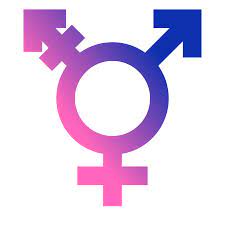Low estrogen levels can be a significant concern for many, particularly for women going through menopause or experiencing hormonal imbalances. Estrogen is an essential hormone that plays a vital role in various bodily functions, influencing everything from mood to physical health. Understanding the symptoms associated with low estrogen levels can empower you to take charge of your health and seek appropriate treatment. In this article, we’ll delve into the ins and outs of low estrogen, its symptoms, and ways to manage them effectively.
Understanding Low Estrogen: What It Means for You
Low estrogen levels can occur for several reasons, including natural life stages such as menopause, certain health conditions, or as a side effect of specific medications. Estrogen is crucial for regulating the menstrual cycle, maintaining bone density, and supporting heart health. When estrogen levels dip, the body may not function optimally, leading to a range of symptoms that can affect daily life.Transwoman Before And AfterWhat Does Estrogen And Progesterone Do
Recognizing low estrogen is essential for both physical and emotional well-being. Early intervention and management can help mitigate symptoms and improve your quality of life. Your body is constantly sending signals; understanding what low estrogen means for you can be the first step towards feeling like yourself again.
Common Symptoms of Low Estrogen Levels to Watch For
One of the most common signs of low estrogen is irregular menstrual cycles. You might notice missed periods or changes in flow, which can be alarming if you’re used to a predictable cycle. Other symptoms include vaginal dryness, which can lead to discomfort during sexual activity, and changes in libido. These symptoms are particularly common during the perimenopause phase but can occur at any age.
In addition to reproductive symptoms, low estrogen can manifest through physical changes like hot flashes, sleep disturbances, and fatigue. If you find that you’re more easily fatigued or waking up at night drenched in sweat, it could be a sign that your estrogen levels are lower than they should be. Keeping track of these symptoms can provide your healthcare provider with valuable information for diagnosis and treatment.
How Low Estrogen Affects Your Mood and Emotions
Low estrogen levels don’t just impact your physical health; they can also take a toll on your emotional well-being. Many women report experiencing mood swings, irritability, or even anxiety when their estrogen levels drop. This is largely due to estrogen’s role in regulating serotonin, a neurotransmitter that contributes to feelings of happiness and well-being.
It’s not uncommon to feel a bit more emotional during this time, whether it’s a sudden bout of sadness or increased sensitivity. If you’re finding that your emotions are harder to manage, it’s important to recognize that this could be linked to hormonal changes. Seeking support from friends, family, or even a mental health professional can be beneficial during this challenging time.
Physical Changes: What Your Body Tells You
In addition to mood changes, low estrogen can lead to various physical changes that can be quite noticeable. For instance, you might notice that your skin becomes drier, loses elasticity, or that you develop more wrinkles than usual. These changes occur because estrogen is vital for maintaining skin health and collagen production.
Bone health is another concern; low estrogen levels can lead to decreased bone density, increasing the risk of osteoporosis. You may not feel any immediate symptoms, but over time, changes in your body can be felt more acutely. Paying attention to these signs and discussing them with your healthcare provider can help you take proactive steps to protect your health.
Why You Might Experience Hot Flashes and Night Sweats
Hot flashes and night sweats are perhaps some of the most talked-about symptoms of low estrogen. These sudden feelings of warmth can strike at any time, often leaving you feeling flushed and uncomfortable. Night sweats, on the other hand, can disrupt sleep, leading to daytime fatigue and irritability. Both symptoms occur due to the body’s inability to regulate temperature effectively when estrogen levels drop.
The exact mechanism behind these symptoms involves the hypothalamus, which is responsible for controlling body temperature. When estrogen levels dip, the hypothalamus may misinterpret body temperature signals, triggering hot flashes and night sweats. While these symptoms can be frustrating, understanding that they are related to hormonal changes can help you manage them better.
The Impact of Low Estrogen on Your Sex Life
Low estrogen levels can significantly impact your sex life, leading to discomfort during intercourse and a decrease in libido. Vaginal dryness is a common complaint, making sex less enjoyable or even painful. It’s a topic that many find difficult to discuss, but it’s crucial to acknowledge that hormonal changes can affect sexual health.
Additionally, emotional factors such as anxiety and mood swings can further complicate intimacy. If you’re experiencing these symptoms, remember that you’re not alone, and there are ways to address them. Open communication with your partner and healthcare provider can lead to solutions that enhance your sexual health and relationship satisfaction.
Diagnosing Low Estrogen: Tests and What to Expect
If you suspect that you have low estrogen levels, the first step is to visit your healthcare provider. They may recommend blood tests to check your hormone levels, typically measuring estradiol, the primary form of estrogen in the body. These tests can help determine if your levels are within a normal range or if they indicate a deficiency.
During your appointment, you can expect a thorough discussion about your symptoms, medical history, and possibly a physical examination. This comprehensive approach ensures that your healthcare provider can accurately diagnose your condition and recommend the most appropriate course of action.
Tips for Managing Low Estrogen Symptoms Effectively
Managing low estrogen symptoms often requires a combination of lifestyle changes and medical intervention. Regular exercise can help improve overall hormonal balance, boost mood, and alleviate some symptoms associated with low estrogen. Incorporating strength training can also support bone health, which is crucial during this time.
Diet plays a critical role as well. Consuming foods rich in phytoestrogens, such as soy products, flaxseeds, and whole grains, may help mimic estrogen effects in the body. Additionally, staying hydrated and maintaining a balanced diet can support your overall health. Don’t hesitate to reach out to your healthcare provider for personalized advice and treatment options.
Low estrogen levels can bring about a range of symptoms that affect your physical and emotional well-being. By understanding these symptoms and their implications, you can take proactive steps to manage them effectively. Remember, you don’t have to navigate this journey alone. Regular check-ups with your healthcare provider and open communication about your symptoms can lead to better management and improved quality of life. Whether it’s through lifestyle changes, medical treatment, or support from loved ones, there are plenty of ways to reclaim your health and happiness.


